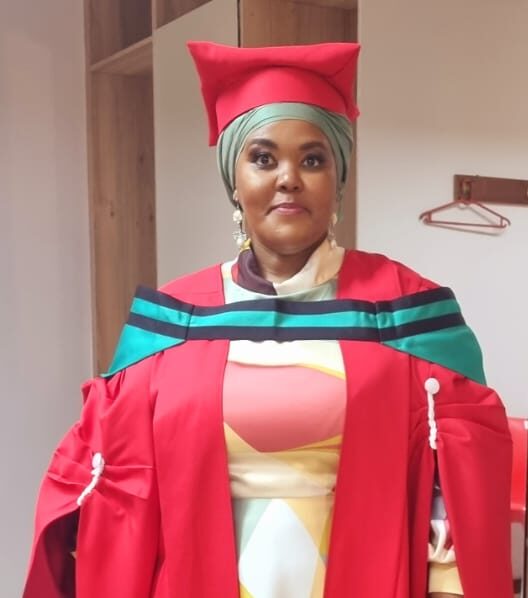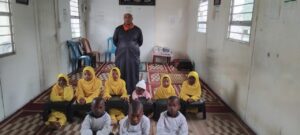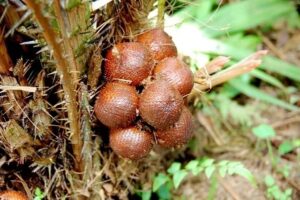
She tells Nabeelah Shaikh that her interest in humanitarian work was instilled in her through various projects of the Muslim Youth Movement of South Africa.
She says it was such activities and projects that really highlighted the level of empathy that the MYMSA instilled in herself and the youth. She’s passionate about education and research and is making a positive impact in the world.
Professor Sindile Amina Ngubane is an academic who is shaking up the spaces that she occupies. She currently serves as a full professor and Acting Head of Department at the Institute for Open and Distance learning, South Africa.
She previously served as the Deputy Director of the Advocacy and Resource Centre for Students with Disabilities (ARCSWiD) and as an Instructional Technologist at the Academy of Applied Technology in Teaching and eLearning.
These are just some of the many powerful roles she’s served in through the years. Ngubane had an exceptional academic journey which all started from humble beginnings and was nurtured during her time in the Muslim Youth Movement of South Africa (MYMSA), back when she joined in 1996.
“I was part of the MYM’s youth programmes and that was my first exposure to international Islamic scholars. What captured me the most during those days is that regardless of people’s backgrounds and where they came from, they were all preaching one thing – the message of Islam,” said Ngubane-Mokiwa.
She says as the youth back then, the MYM helped them to ensure that they actually entered different spaces and brought in the message of Islam.
“It’s amazing how we did this in a way that it could actually be processed by other people who are not Muslim, and that stuck with me. We would go to different areas and let them understand and live Islam. I remember there was this session that used to be called Living Islam, meaning that you get there and you live as a Muslim and people must see this through the way you conduct yourself, the Islamic principles, and the way that you live,” said Ngubane.
She also served as the Secretary General of the MYM.
“We would go to different projects that were part of the Women’s Desk. And one that really stuck out to me is how we would go to the hospital and feed HIV patients. There was a serious issue of people having to take their medication but not having enough food to sustain them,” said Ngubane.
She says the MYM prepared the food and then went to the hospital to feed the patients.
“It was so significant because I remember at first people were very scared to mix with people who were infected with HIV. There was the stigma. But we were spreading a message that regardless of your HIV status, we are not here to judge you. We are here to provide what we can and give you hope,” said Ngubane.
Abstinence
She says it was such activities and projects that really highlighted the level of empathy that the MYMSA instilled in herself and the youth.
“Together with that, we also had a project that we were doing called The Muslim AIDS programme which was led by the Islamic Medical Association. We were preaching the issue of abstinence,” said Ngubane.
After Ngubane completed school, she found herself in a tough position where financially, she could not afford to study.
“I completed school and there was me and my brother. My parents didn’t have enough money to educate both of us. I got a scholarship and went to the Islamic University in Uganda. I did mass communication. When I came back to South Africa, I worked at an Islamic School for girls as a computer instructor – I think for four years. But still, it just felt weird. Like there’s something more I’m supposed to do,” said Ngubane.
She decided to leave her job at the school and went back to full-time studying.
“I did my honours in Educational Technology and that’s how my career with where I am today, actually started. I’m pushing the issue of how technology is used to support students and elders. I did a Masters degree at UKZN. I did my PhD full time and it was about ICT in the support of blind students,” said Ngubane.
She says in her village growing up, there was a girl who was blind, and she always used to wonder how she studied and this motivated her to look into these topics.
“I chose to focus on disabilities and how ICT is used to enhance learning. My career then had to be in research. In 2014, I was appointed as a Senior Researcher, at the Institute for Open and Distance Learning, and I climbed up the ladder with several promotions,” said Ngubane.
Today, she is a full professor at the Institute.
Ngubane says her story is one of hope, resilience, and making education a top priority.
Her message to other women is to always do the same.
“I would say seek knowledge from the cradle to the grave and never forget the importance of education. Get some kind of skill for yourself as a woman. You should be able to provide that kind of security for yourself. If you lose your support system either through a divorce or through death, then you must be able to take care of yourself and your family, and that will enable you to actually live a sustainable life,” said Ngubane.
She urged women to make the best of the skills they may already have.
“Accumulating knowledge is so important. Choose your own capabilities. If it means that you are good with your hands, take those skills and then learn how to sustain yourself by using them and learn how you can profit with that through business,” said Ngubane.










